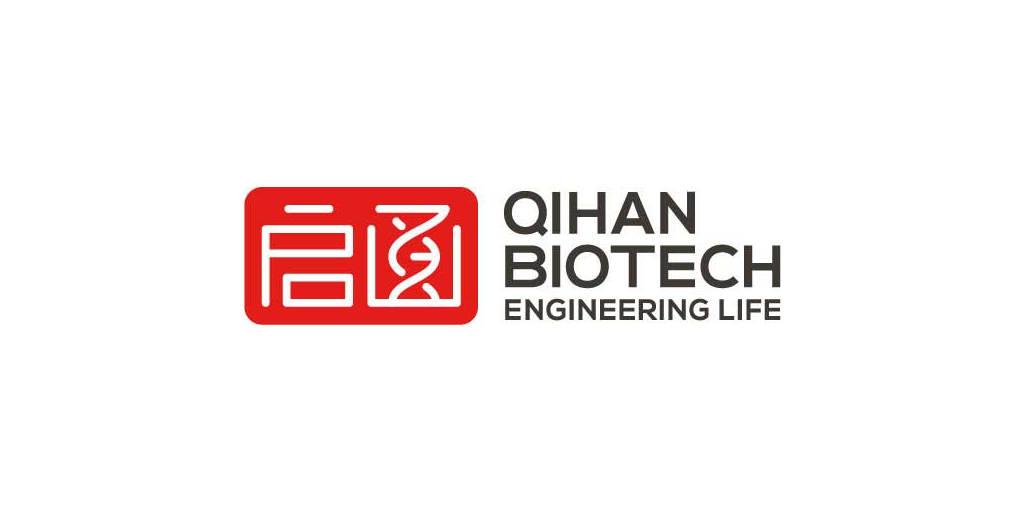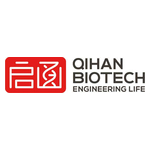HANGZHOU, China--(BUSINESS WIRE)--Hangzhou Qihan Biotech Co., Ltd. ("Qihan" or "Qihan Biotech" or "the Company"), an industry leader in applying multiplexable genome editing technology to cell therapies and organ transplantation, announced its groundbreaking research titled "Testing Multiplexed anti-ASFV CRISPR-Cas9 in Reducing African Swine Fever Virus" in Microbiology Spectrum, an academic journal of the American Society for Microbiology. Qihan Biotech's R&D team led the study in collaboration with Professor Zezhong Zheng of South China Agricultural University, Professor Hongjiang Wei and Professor Hongye Zhao of Yunnan Agricultural University, and Professor George Church and his team at Harvard University.
The study indicates that the long-term expression of CRISPR-Cas, specifically targeting the pathogen genome in living organisms, holds promise as an effective method to inhibit the replication and infection of the African Swine Fever Virus (ASFV). The research team designed a CRISPR-Cas system to disrupt nine specific sites within the ASFV genome and observed a significant inhibitory effect on virus replication in vitro. Subsequently, the team achieved stable insertion of CRISPR-Cas into pig cells through gene editing and produced pigs that continuously express CRISPR-Cas, targeting the ASFV genome using cloning technology. In live animal pathogen challenge experiments, the transgenic pigs demonstrated a certain level of resistance to African Swine Fever.
To our knowledge, this research marks the world's first successful creation of a large transgenic animal with stable CRISPR-Cas gene expression, enabling resistance to exogenous viral invasion through the specific multi-site cutting of the viral genome. African Swine Fever is a lethal disease with a long-term, massive impact on global agricultural livestock. This study assessed and enhanced pigs' resistance to African Swine Fever Virus (ASFV) infection, providing valuable insights for future antiviral immune strategies in agriculture and livestock farming. Furthermore, this research offers greater safety assurances for utilizing pigs as organ bioreactors in xenotransplantation.
Dr. Luhan Yang, Founder and CEO of Qihan Biotech, stated, "Qihan's vision is to develop off-the-shelf cellular and organ products to serve millions of patients. We focus on developing allogeneic cell therapies in the short term, yet we also have been committed to xenotransplantation research. Many scientific questions exist to explore and solve in addressing cell and organ rejection issues and controlling biosafety. Through the solid collaboration of Qihan's team and our partners, I am confident we will steadily propel our projects forward and realize the company's vision."
Original paper link: https://journals.asm.org/doi/10.1128/spectrum.02164-23
About Qihan Biotech
Qihan Biotech is a biotechnology company applying genome editing technology to develop novel cell therapies and organs for transplantation. The company's mission is to use high-throughput, multiplexable genome editing combined with expertise in transplantation immunology to create immunologically privileged allogeneic cells and xenogeneic organs for use as therapies to treat cancer, autoimmune diseases, organ failure, and other complex medical conditions. With a vision to create a world in which cell and organ therapies are universally available to patients, Qihan Biotech has raised two financing rounds. It has multiple products at different stages of development, including QN-019a, which had already received IND approval from China NMPA to treat CD19-positive relapsed/refractory aggressive B-cell non-Hodgkin lymphoma. Qihan's deep scientific experience and technology advancements have enabled the company to create cutting-edge cell therapy products. Qihan Biotech is headquartered in Hangzhou, China. For more information, please visit the company's website at www.qihanbio.com.
Forward-looking Statements
This release contains statements including, but not limited to, Qihan’s research development and/or relevant programs, its past, ongoing, and planned research studies, and the potential of Qihan’s research candidate. These and any other statements in this release are based on Qihan management's current expectations of future events and are subject to a number of risks and uncertainties that could cause actual results to differ materially and adversely from those set forth in or implied by such statements. These risks and uncertainties include, but are not limited to, the risk that Qihan’s research program may not warrant further development, the risk that results observed in prior studies of Qihan’s research candidates will not be observed in ongoing or future studies involving these candidates, the risk of a delay or difficulties in the developing or transforming of Qihan’s research candidates, the risk that Qihan may cease or delay the research development of any of its candidates for a variety of reasons. Qihan is providing the information in this release as of this date and does not undertake any obligation to update any statements contained in this release as a result of new information, future events, or otherwise. Information concerning therapies and related products contained herein is not intended as medical advice.
Source: Hangzhou Qihan Biotech Co., Ltd.
Contacts
Media:
Mollee Xu
Qihan Biotech Public Relations
Tel: +86 0571-83500380
Fax: +86 0571-83500370
[email protected]











